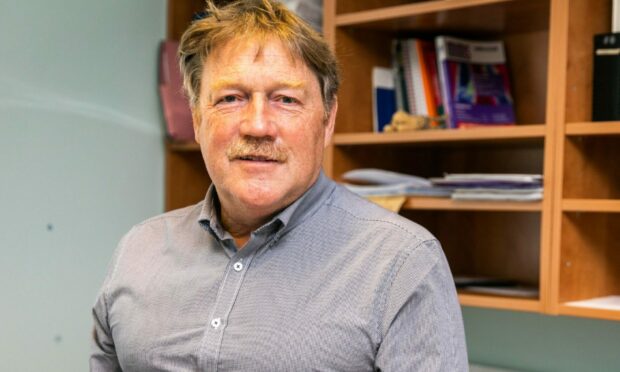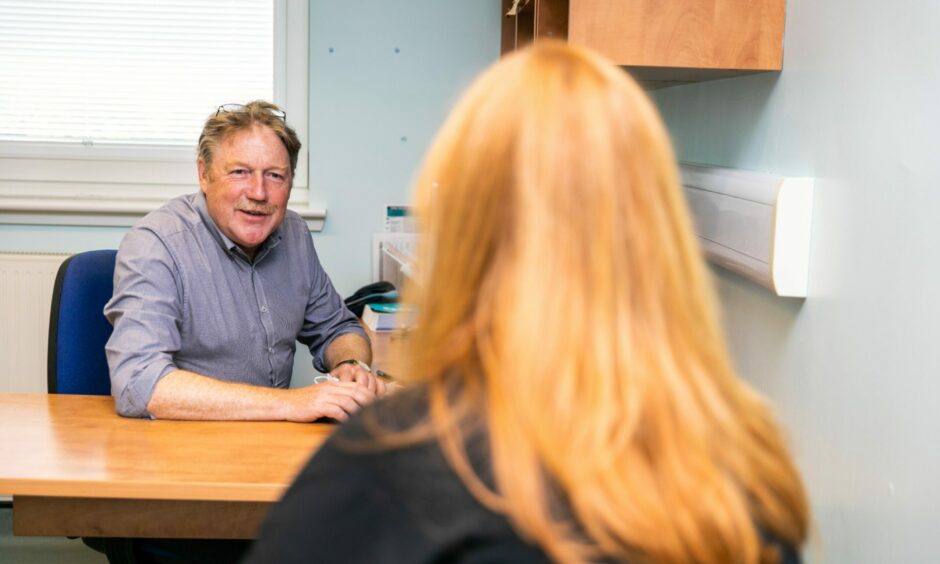A Perth-based senior doctor is calling for the Scottish Government to have a ‘national conversation’ about what GPs can ‘realistically deliver’.
Dr David Shackles, of Perth and Scone Medical Group – who is also joint chair of the Royal College of General Practioners (RCGP) Scotland – says there is ‘an immense surge of demand’ on GP services.
He says rising numbers of scarlet fever and Strep A infections across Tayside and Fife, alongside a range of other issues, are also impacting surgeries.
Some practices, Dr Shackles says, are ‘struggling to cope’ with demands and many GPs feel they’re being asked ‘to do the impossible’.
And he’s calling for the Scottish Government to begin talking to the public in a National Conversation about GP services.
Dr Shackles says: “The higher number of scarlet fever and group A strep infections at this time means that GPs are being vigilant in looking to provide advice and to identify and treat potential A streptococcal infections.
‘Workload pressures’
“Some practices have been struggling to cope with the immense surge of demand that has arisen through upper respiratory tract infections, on top of the existing workforce shortages and workload pressures in these winter months.”
He adds: “We understand parents will be concerned about this type of illness, particularly when some cases in other parts of the UK have had tragic outcomes.
“But it is important to note invasive GAS infections are rare and the small number of cases reported in Scotland in recent weeks is so far not higher than in previous years.
“The serious, invasive cases of infection are thankfully still rare, and any parents concerned that their child is unwell should seek urgent medical attention.
“GPs and their teams must be available to see those patients who really need our care.
“But this week much of our efforts have been directed towards acute and often minor illnesses.
‘What GPs can realistically be expected to deliver’
He continues: “RCGP Scotland urges the Scottish Government to have a National Conversation with the public to explain what general practice can realistically be expected to deliver under ongoing pressures.”
The doctor’s comments follow the publication of a RCGP Scotland report earlier this week ‘Retaining Our GP Workforce In Scotland which says GPs want to work with the Scottish Government and other stakeholders to deliver change.
‘Asked to do the impossible’
Dr Shackles adds: “Amidst the current crises of workforce shortages, unsustainable workload, and upsettingly low morale, GPs are being asked to do the impossible.
“Many GPs believe their current working conditions are unsafe and impacting on their ability to treat patients.”
“Recruitment is undeniably crucial, but we need to focus on the retention of our existing
workforce to meet current demand and support the future of general practice.
“The RCGP’s retention report outlines some of the tools the Scottish Government and policy makers can reach for to begin to remedy the situation and reignite the joy of the profession.”
Dr Shackles comments come following similar calls for change by Blairgowrie GP Andrew Buist, chairman of BMA Scotland’s Scottish GP committee.
Health Secretary Humza Yousaf addressed GPs at the Scottish Local Medical Committee conference earlier this month.
He acknowledged the pressures many GPs are under and said he did not wish to “sugarcoat” the situation.
Mr Yousaf said: “I have been a Government minister for 10 years in various different guises, I’ve never seen the public finances as constrained as they currently are.”
He added: “We will continue to invest, not just in recruitment but in retention, we will continue to invest in sustainability.”













Conversation